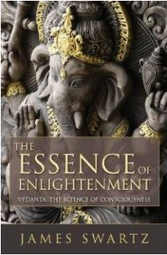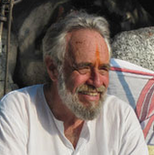|
If you want to know what you will be when you are enlightened, this chapter is for you. If you have a lot of energy invested in the idea that you are enlightened, you should read this chapter—or maybe you shouldn't, as it may call your enlightenment into question. What is an "enlightened" person? Obviously, if reality is non-dual consciousness there are no enlightened persons. Enlightened people, like ordinary people, are nothing more than limitless awareness appearing as human beings. Or, if you prefer a slightly less radical notion, can't accept that ‘people' is only an idea in awareness and want to think of it differently, you could say that everyone is enlightened, meaning each of us is illumined by awareness, ‘in the light,’ so to speak. In fact every living organism is enlightened according to this definition because without awareness nothing exists. You might even successfully argue that insentient objects are enlightened according to this definition because insentient objects have meaning only if they are known to exist and they can be known to exist only if consciousness illumines the knowing faculty, the Subtle Body. Though true, these definitions of enlightenment are understood by very few indeed. In addition, they are certainly unpopular with those in the spiritual world who would use their idea of enlightenment as a special status or those who need a more liberal definition, one that allows them to impress, manipulate, intimidate, exploit and hoodwink unsuspecting seekers. You may believe that all spiritual people are somehow... well... spiritual, but you would be wrong. Spiritual people are just worldly people dressed up in special clothing. While they have a vasana for otherworldly intangibles, they are not necessarily immune to the assortment of everyday attractions favored by their worldly brothers and sisters: the pull of security pleasure, power, and fame. The first definition denies the existence of the individual and the second voids the idea of enlightenment altogether. Enlightenment as the non-existence of an individual is not a workable idea. In addition to our nature as limitless awareness, we all enjoy a limited existence as ordinary human beings. As a normal person seeking freedom I need to know what enlightenment is and why I should seek it. So the question "What is an enlightened person?" is relevant. How will my life look when I know who I really am? Remember, Vedanta is not concerned with the details of your personhood. These you know full well. You have lived with yourself for a long time and are quite familiar with your narrative. We do not denigrate, dismiss or diminish that person at all. We only say that that you have a much more spacious identity and that knowledge of that identity will make your life wonderful indeed. Enlightenment is the loss of ignorance of that spacious, ever-free identity. Our teaching strips away the beliefs and opinions we have about ourselves, leaving us naked and free as we really are. In our tradition we shy away from the word enlightenment, even though I have used it shamelessly in this chapter and in the title to make my book appealing because it is a popular word. Enlightenment is similar to the word God in that it can mean what you want it to mean. But generally, we don't endorse it, because it gives the impression that it is a special event that confers a special status, whereas it is much more simple and profound than that. So far we have explained Vedanta's view of reality and unfolded the tools needed to qualify for it and to understand it. If you have been seeking for some time, and nearly everyone who is reading this book probably has, you will understand that, compared to the meager fare dished up in the modern spiritual soup kitchen, Vedanta is a classy joint that serves red meat: a time tested, complete, seriously nutritious means of self-knowledge you can sink your spiritual teeth into. Now we need to explain what freedom looks like to make your way easier as you wend your way through the spiritual marketplace, and to guide you once you have realized who you are. You may think you have a choice but you have no choice about seeking; you are driven by a self whose powerful need for freedom will not be denied. We need to explain what it means to be free so you can avoid enlightenment sickness, bad teachings and bad teachers. Bad teachings are vague and incomplete teachings based on the personal experience of the teacher and/or cobbled together from books that have no methodology and no epistemology. Bad teachings tend to heartily endorse duality or deny the apparent reality and ignore any one or all of the obviously essential topics: the need for qualifications; dharma; values; the relationship between the apparent and the real; the relationship between experience and knowledge; the need for spiritual practice; the downside of action; the lack of a complete and dispassionate analysis of consciousness, the psyche, and the material world; and finally, Isvara and the necessity of devotion to Isvara. Enlightenment Sickness Bad teachers are those who have not worked on themselves, because they have been seduced by the idea that an epiphany or a series of epiphanies means that they are enlightened and are therefore qualified to teach. It so happens that epiphanies happen to individuals at every stage of evolution. They do not happen exclusively to saints. In fact, many saints have never had an epiphany. Bad teachers are rarely bad people. They are often charismatic and well meaning but unpurified individuals who have prematurely hung out a shingle advertising themselves as world saviors or they are ambitious people who would like to accomplish in enlightenment what they failed to accomplish in the world. Rarely do they realize that spirituality is a samsara like none other, that enlightenment does not make them special, nor does it lend gravitas to their words. It is quite amazing how utterly banal are the vices that have brought so many modern gurus down. A Fallen Yogi Recently I received an email with a link to a web blog by a reasonably famous ‘enlightened’ teacher in the Neo-Advaita world. He said he was renouncing gurudom to work on himself and become a ‘better person’. It was a surprising event because arrogant people invariably live in an ironclad state of denial, the better to project their emotional problems on others. Evidently the chorus of angry voices that followed him for twenty-seven years swelled to such a din that it became too loud to ignore. His statement will undoubtedly be seen by some as a courageous act of contrition, the uplifting resolve of a newly minted reprobate taking the first halting steps on the road to redemption and by others as a disingenuous attempt to make the public believe that he was not forced to step down by his organization, leaving the door open for a triumphant return once he had atoned for his sins. The real lesson, however, is not his personal story but what it says about his view of enlightenment, since it was behind this view that he perpetrated so much misery. Had he been taught by a proper teacher in a proper tradition he might have known what enlightenment is and hundreds, perhaps thousands would have been spared much heartache. He was obviously not enlightened by even the most liberal definition. What he called enlightenment was merely an epiphany that had a profound effect on his ego and convinced him that there was something more than his way of seeing at the time. It convinced him wrongly that he was ‘enlightened.’ In fact enlightenment, as it is popularly conceived, is not something that happens, because there is only one eternal you—nothing ever happens from your point of view—and you are, have always been, and ever will be the light of awareness and the light alone. As such you are unborn and never die. Experiences are born and die. They do not change you and make you into something other than what you are. If you take yourself to be an experiencing entity, an ego, you will be apparently, but never actually, modified by what happens, spiritual or otherwise. If I am awareness there is no way to conclude that I am special or unique. Or perhaps there is: since there is only one of me, I am unique. However, this fact is not helpful if you are looking for a way to distinguish yourself, since there are no others to appreciate it. The understanding of my nature illumines the ego, because the ego is just a notion of specialness and uniqueness. If I see my ego it cannot be me. Vedanta does not want it to disappear or expect it to transcend the world. It simply views it as an object, an idea of separateness. It should be noted once more that most of the mischief in the spiritual world over the centuries can be laid squarely at the feet of the idea of ego death and transcendence, two signature features of the experiential view of enlightenment. What actually happened to our yogi? He imagined he had transcended himself, came to believe that he now inhabited a special experiential niche reserved only for the few, and convinced himself that his epiphany empowered him to enlighten others. Along with it came the companion belief that the end justifies the means, opening the door to a remarkably abusive ‘teaching.’ The craving for power, born of his sense of smallness and inadequacy, present from childhood, survived the epiphany—as such things do—and immediately manifested in his environment with predictable results, blinding him to life's number one moral value, non-injury. Although he spoke non-duality, his version of enlightenment was pure duality. It amounts to splitting the ego into a transcendental self and a self to be transcended. To make this idea work, the ego needs to be in a state of complete denial. It must imagine that the non-transcendent part of itself doesn't exist. It didn't exist for him, at least not officially, although it must have troubled him all along, but sadly it existed for his devotees—some say fools—until they put a stop to it, after twenty-seven years! To keep the myth of transcendence alive and transfer his emotional problems elsewhere, the enlightened one is forced to lay them at the feet of the devotees, usually immature sycophants who, for reasons related to their own self-esteem issues, believe in the myth of transcendence. Nobody is transcendent because reality is non-dual. There is only one self. Ironically, the myth of ego death, aided by the guru's attacks on the ego, is counterproductive insofar as it reinforces the belief that the seeker is the ego. You are awareness and awareness is apparently other than what it perceives, meaning that what it perceives is itself. During "awakening" moments you are actually experiencing yourself as you are, but ignorance survives these moments and projects the experience on the ego. Vedanta calls this phenomenon superimposition. I call it enlightenment sickness. It is a state of delusion. You think that what belongs to you, awareness, belongs to the ego. When the transcendent experience wears off you go back to the ego level but now somehow believe you are something other than your ego. You declare yourself enlightened and imagine that you are qualified to teach others.
|
|||
|
|||


www.advaita.org.uk
Advaita for the 21st Century



Book Extract
The Enlightened Person
James Swartz

James Swartz has travelled extensively throughout America, Europe and India, giving seminars on the science os self-inquiry known as Vedanta. He studied with the Indian sage Swami Chinmayananda and shares Vedanta's non-dual wisdom on his website.
He writes: Although written by me, the books and articles found here are not my personal theories, ideas, opinions or beliefs. They are an attempt to render in clear modern English the Vedantic teachings that set me free.
Biography
BOOK DETAILS
Publisher: Sentient Publications
ISBN: 978-1-59181-277-7
Format : Paperback
Pages: 250
List Price: £11.55, US$16.95
Where to Buy
AUTHOR DETAILS

